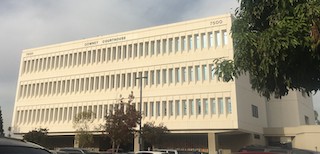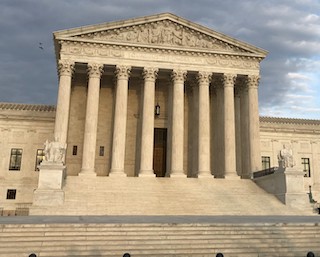In 2003, Whittier Police officers arrested our client as he was leaving his sister-in-law’s wedding. He was not driving because he had had a few drinks. His wife was driving. Our client was not a U.S. citizen. He had come to the U.S. from age six with his parents.
Police pulled up behind the couple’s parked car and told our client he was not safe to drive. Our client, then age 24, explained that he was not going to drive; his wife was already seated in the driver’s seat.
Police then pepper-sprayed our client and reported that he wrestled with police.
He was then arrested and charged in the Downey Superior Court with a violating Penal Code § 148(a)(1), resisting, delaying or obstructing arrest. At that time in 2004, the Whittier Superior Court was closed, so criminal matters arising in Whittier were filed in Downey.
Our client’s then-criminal defense attorney, the public defender, urged our client, then twenty-three years old, to plead no contest to the misdemeanor charge and he did so.
While the plea deal negotiated by the public defender and the District Attorney certainly was favorable in terms of avoiding time in custody, it damaged our client’s immigration status. The public defender failed to advise our client of the severe immigration consequences that his plea would cause. The then-criminal defense attorney also failed to take any steps to defend against the immigration consequences associated with such a conviction. No type of immigration-neutral plea was sought.
 Downey Courthouse
Downey Courthouse
This conduct, while somewhat mitigated because it took place in 2003, was inexcusable in light of the Sixth Amendment duty of defense counsel to advise of and defend against the immigration consequences of a criminal conviction, set out in a long line of California cases, culminating in the U.S. Supreme Court decision in
Padilla v. Kentucky (2010) 559 U.S. 356, 130 S.Ct. 1473.
Had our client been appropriately advised of the immigration consequences of a Penal Code § 148(a)(1) conviction in his case, given how much was at stake, he would never have accepted the plea and would have directed his counsel to seek an alternative disposition or prepare for trial instead.
Consequently, during the plea colloquy when the immigration admonition was given, our client did not think it applied to him because he was a valid work permit holder. He understood that such an admonition was given in every plea, regardless of whether it applied. Moreover, our client was too intimidated by his then-defense counsel to ask further questions about the plea and its immigration consequences.
 U.S. Supreme Court
U.S. Supreme Court
Our client did not know this conviction was any problem until 2021 when deportation proceedings began against him. Our client, now age 41, was shocked. He had three children here (all U.S. citizens because they were born here) who did not even know how to speak Spanish. He had a steady job. His wife was a U.S. citizen. He was living in Arizona and owned a house.
The client then called Greg Hill & Associates and asked what he could do. Greg explained what Penal Code § 1473.7(a)(2) provided and then asked the client about what he was aware of or ignorant of during the time when he entered his plea. The client explained what the summary above sets forth.
Greg then prepared and filed a Motion to Vacate a Conviction under Penal Code § 1473.7(a)(2). The motion was served upon our client’s prior public defender to give him notice to respond and appear in court if he so desired. Our office also reached out to the court reporter on the case from 2004 to see if she had a copy of the transcript from when the client entered his plea and when she said she did not, we secured a signed declaration to this effect from her for the judge to read.
The judge hearing the motion granted the motion and the District Attorney assigned to the case explained that the People were unable to proceed with prosecution, so the judge then dismissed the case under Penal Code § 1385 (in the interests of justice), which greatly helped the client’s immigration case.
For more information about 1473.7(a)(1) issues, please click on the following articles:
 Downey Courthouse
Downey Courthouse U.S. Supreme Court
U.S. Supreme Court